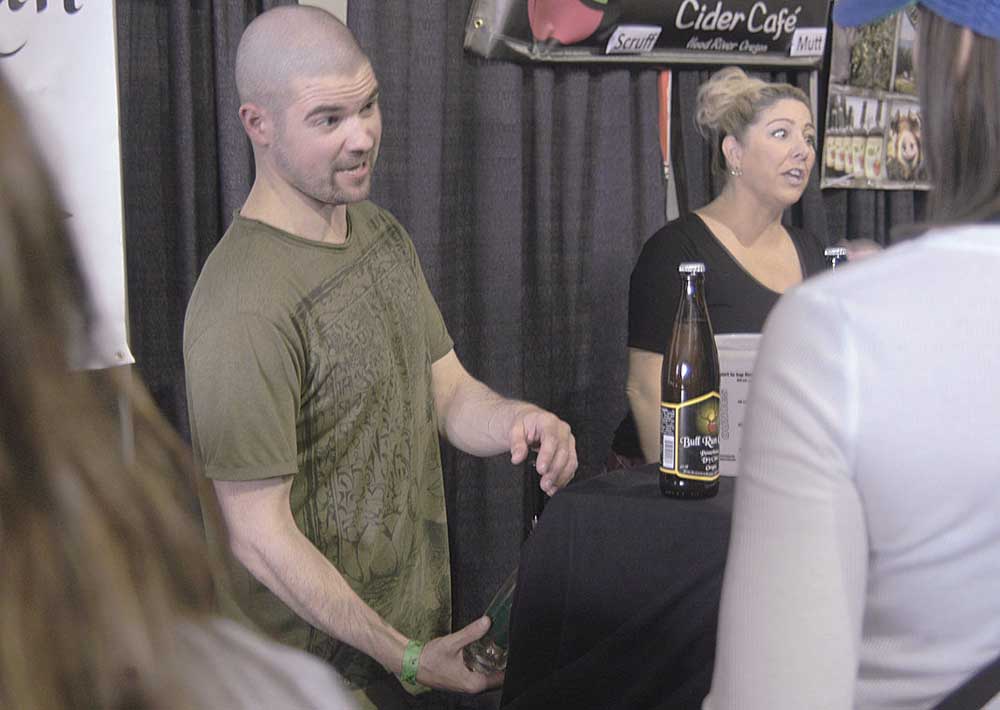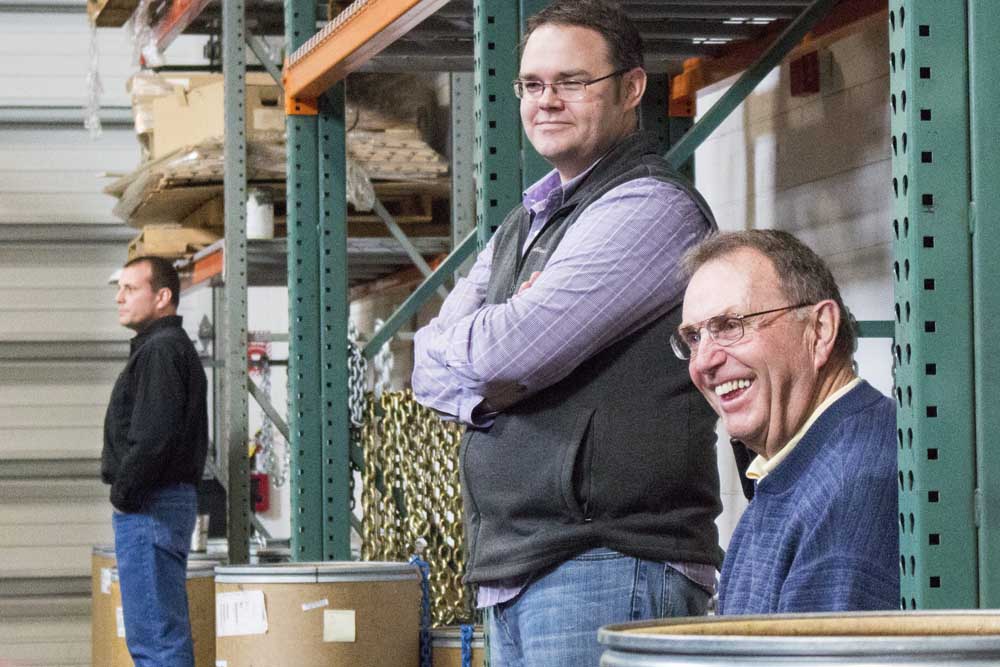Hard cider makes an easy connection between urban and rural
Published 4:08 pm Friday, April 29, 2016

- Patrick Martin of Bull Run Cider in Forest Grove pours a tasting glass during the Hard-Pressed Cider Fest in April in Hood River. More than a dozen Northwest cideries brought samples of their products.
ODELL — About 3,200 people packed the Hard-Pressed Cider Fest here in April, which itself isn’t that unusual. In terms of consumer tastes and response, hard cider is following in the successful Pacific Northwest footsteps of regional beer and wine.
Trending
The news may lie in who attended. Anecdotally, at least, the crowd’s demographics leaned heavily to young and urban. Cider makers say the same kind of people who like microbrews and fine wine also like hard cider.
And rural producers, generally, are glad they do. In some cases, especially with niche markets, winning the favor of city buyers can lead to success.
“Seattle and Portland are really good about trying new things,” said Bob Fox, who manages Fox-tail Cider in the Hood River Valley, where the festival was held. He said many of the people stopping at his tasting station were from those cities, and from Bend and the Tri-Cities area as well.
Trending
Fox is a fifth-generation orchardist, an operation that began with his great-great-grandfather, August Paasch. He said he grows “pears and cherries, apples, peaches and what-not.”
Looking to diversify operations, the family branched off a new business and began making Fox-tail Cider in 2012.
“So far, so good,” Fox said. “People keep drinking it, so we keep making it. It’s a good agricultural product. I think it helped out with the apple market.”
Hood River vineyard owner and winemaker Rich Cushman said hard cider is a good fit for the valley. With the cornucopia of fruit grown nearby, much of which can be used to make or flavor cider, the valley ought to lay claim to the title of the U.S. “cider capital,” he said.
“I think we should be all over that in Hood River,” he said.
Cushman said there is “huge interest” in cider and demand is strong. “We need more staff to really serve the market that’s out there for us.”
Cushman teamed with high school classmate Steve Bickford, an orchardist and vineyard owner, to form Hood River Ciderworks in 2013. Valley residents, long familiar with traditional, fresh-market pear and apple production, appear to have embraced wine, cider and other new forms of value-added agriculture.
“They now recognize that diversity in business is a good thing to have here, rather than focus solely on one business segment like lumber or something,” Cushman said. “Some other counties, that was their entire ball of wax and they’re still struggling.”
Attendance data for the cider fest is limited, but interesting. Of the 384 tickets sold online, 41 percent were bought by people residing in Portland or its suburbs; another 12 percent were from the Vancouver, Washington, area. A smattering were from Seattle; people living in or near Hood River bought 22 percent of the online tickets, according to the Hood River Chamber of Commerce.
Industry observers say production of hard cider — the alcoholic cousin of sweet apple cider — is growing rapidly, especially in the West.
Cider’s rapid acceptance by consumers comes even as some producers are hastily pursuing and planting old English and French variety cider apples. Most hard cider made today is from repurposed dessert apples, flavored in some cases with berries, rhubarb, tangerine and more. Fox and Cushman aren’t convinced it’s necessary to use traditional cider apples; Fox believes boutique cideries will spring up to claim that niche. A retired Cornell University apple researcher, cider maker and professor, Ian Merwin, described the Northwest cider scene as “a total free-for-all, no rules.”
He estimated that people in Oregon, Washington state and California drink 80 percent of the hard cider consumed in the U.S. Speakers at the U.S. Cider Association’s annual convention, held in Portland in February, said cider accounts for 1.7 percent of alcohol sales nationally, but about 4 percent in Portland and Seattle.
The February convention attracted about 1,200 cider makers, apple growers, distributors and others from 44 states and eight countries.
In related news, the Northwest Cider Association announced Emily Ritchie will become the group’s executive director effective Monday.
Ritchie, now the association’s program manager, previously was a marketing and sales associate for Truitt Family Food in Salem and directed the Oregon FoodCorps program at the state Department of Agriculture.









